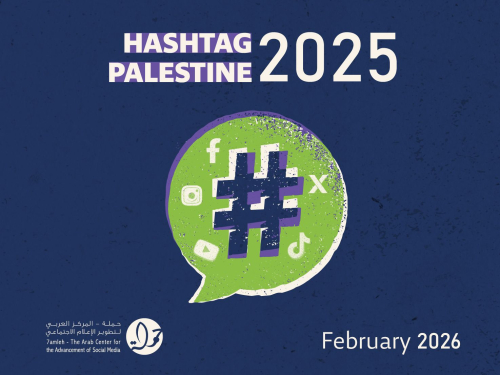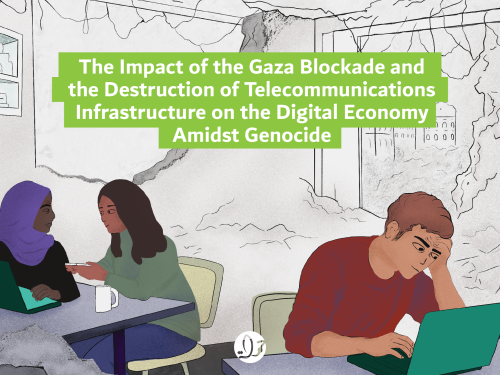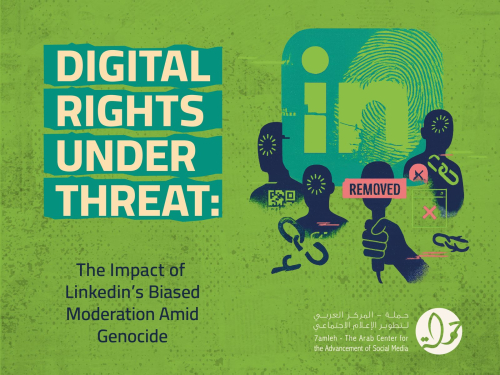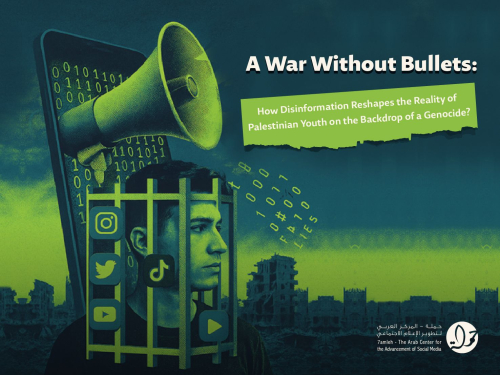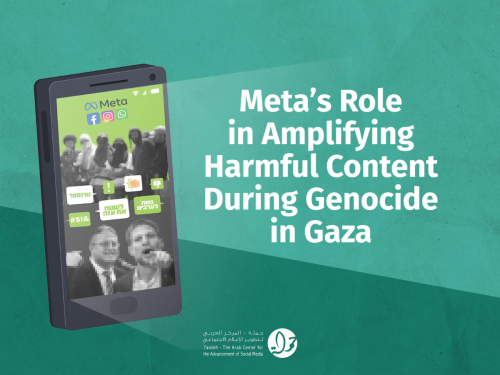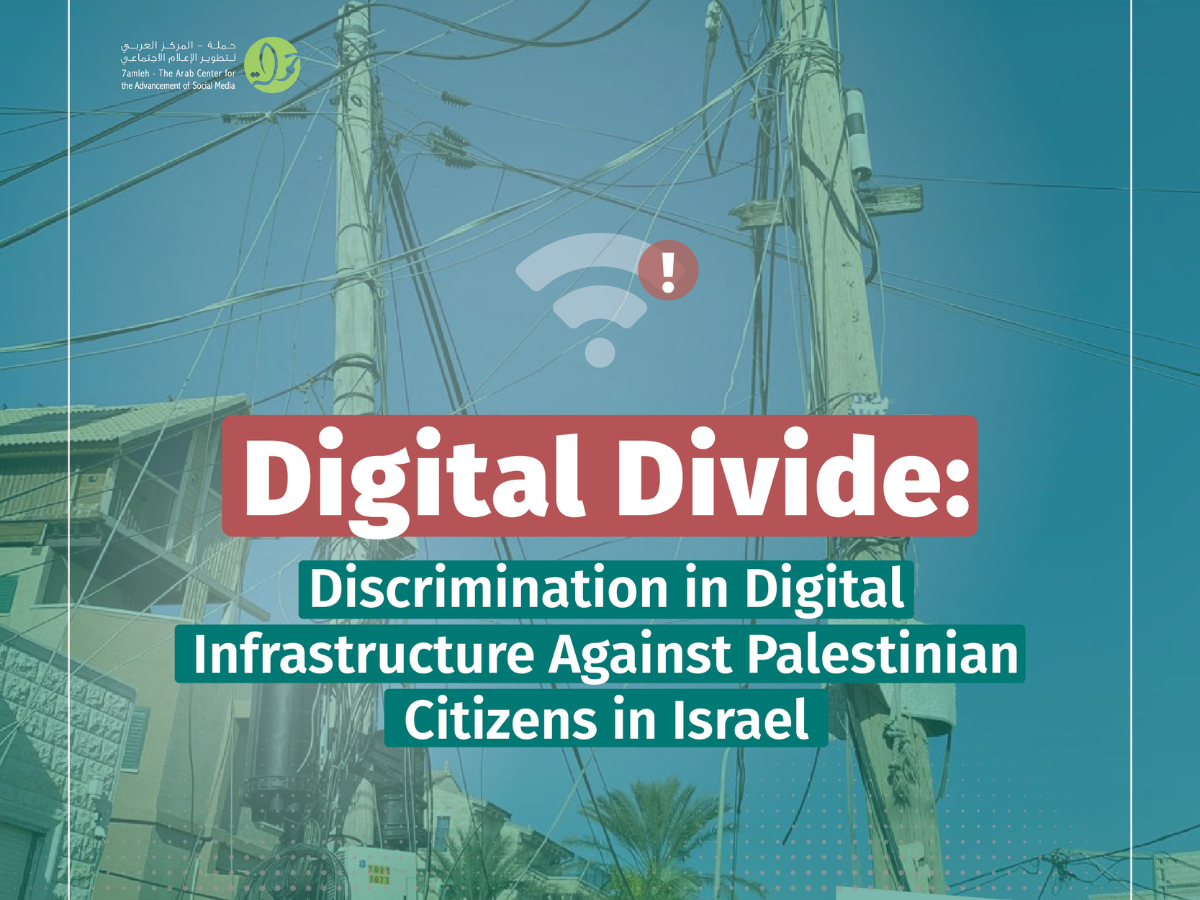
March 25, 2025, 7amleh - The Arab Center for the Advancement of Social Media released its latest report titled “Digital Divide: Discrimination in Digital Infrastructure Against Palestinian Citizens in Israel,” authored by researcher Habeeb Makhoul. The report documents systemic discrimination in digital and internet infrastructure within Palestinian communities inside Israel, focusing on the significant disparities Palestinian citizens face in accessing fair and equal digital services compared to Jewish citizens—particularly in Palestinian towns and the unrecognized villages in Al-Naqab (Negev), which are home to over 120,000 Palestinians and remain deprived of basic internet services. The report reveals that over 25% of Palestinian citizens in Israel rely on mobile phones as their primary means of accessing the internet, compared to a significantly lower percentage in the Jewish population—reflecting the severe lack of fixed digital infrastructure in Arab localities.
The report affirms that access to the internet is a fundamental human right. In a rapidly digitizing world, this right is a gateway to participation in public life, self-expression, knowledge acquisition, and inclusion in health, education, and economic and social spaces. However, the data in this report shows that this right is not being equally upheld. A deepening digital divide separates those who enjoy high-quality digital services from those who receive limited and lower-quality services—chiefly Palestinian citizens.
In its first chapters, the report details various manifestations of discrimination in internet accessibility. The first chapter highlights the Israeli government’s failure to uphold the principle of universality in unrecognized Bedouin towns and villages in Al-Naqab, depriving residents of essential services such as water, electricity, and internet. The second chapter focuses on fiber-optic infrastructure as the fastest means of digital connection, through a comparative study between Nazareth, the largest Palestinian city inside Israel, and Nof Hagalil, a Jewish-majority city. The comparison reveals widespread availability of fiber-optic infrastructure in Nof Hagalil, while Nazareth completely lacks such infrastructure and was not even included in tenders by the Israeli Ministry of Communications—reflecting discriminatory policies in planning and implementation. The report also compares Nazareth to the illegal settlement of Ariel in the occupied West Bank, exposing Israel’s prioritization of settlers’ needs over those of its Palestinian citizens.
The third chapter sheds light on similar forms of discrimination in mobile phone networks, highlighting significant coverage gaps—particularly in entire areas of Al-Naqab that completely lack signal. It also underscores the stark disparity between Nazareth and Nof Hagalil, where only a single street separates the two cities. Despite this, Nazareth is limited to 3G network access, while Nof Hagalil benefits from 5G services. The chapter concludes with an analysis of additional forms of discrimination, such as poor infrastructure quality and lack of competition, reflecting the structural discrimination embedded in the digital sector.
The report calls on Palestinian civil society to continue documenting digital rights violations and to advocate for improved connectivity, especially in marginalized areas like Al-Naqab. It also urges legal action to hold telecommunications companies accountable for discriminatory practices. On the international level, the report calls for the recognition of internet access as a basic right and for holding Israel and its companies accountable for their discriminatory policies. It emphasizes the urgent need for global standards that prohibit discrimination in digital infrastructure and promote digital justice.
7amleh stresses that equal access to the internet is not a luxury—it is a fundamental right that must be protected. Discrimination in digital infrastructure is another form of exclusion that demands exposure and structural reform. In this context, Nadim Nashif, Director of 7amleh, stated: “This report reveals a dangerous aspect of the systemic discrimination faced by Palestinian citizens in Israel. As in many areas of life, the digital sphere is also plagued by inequality that hinders progress in education, healthcare, and employment. In today’s digital age, access to high-speed, quality internet is essential for performing daily tasks—whether it’s working, managing banking transactions, engaging in remote learning, or obtaining health information. This report aims to expose these unjust policies and shed light on their impact, in order to pressure decision-makers who promote narratives of inclusive and equitable digital policies, while the reality tells a very different story.”
To access the full report, please visit the link here.
Related Articles
Subscribe to Our Email Alerts
And stay updated with our latest activities, news, and publications!

